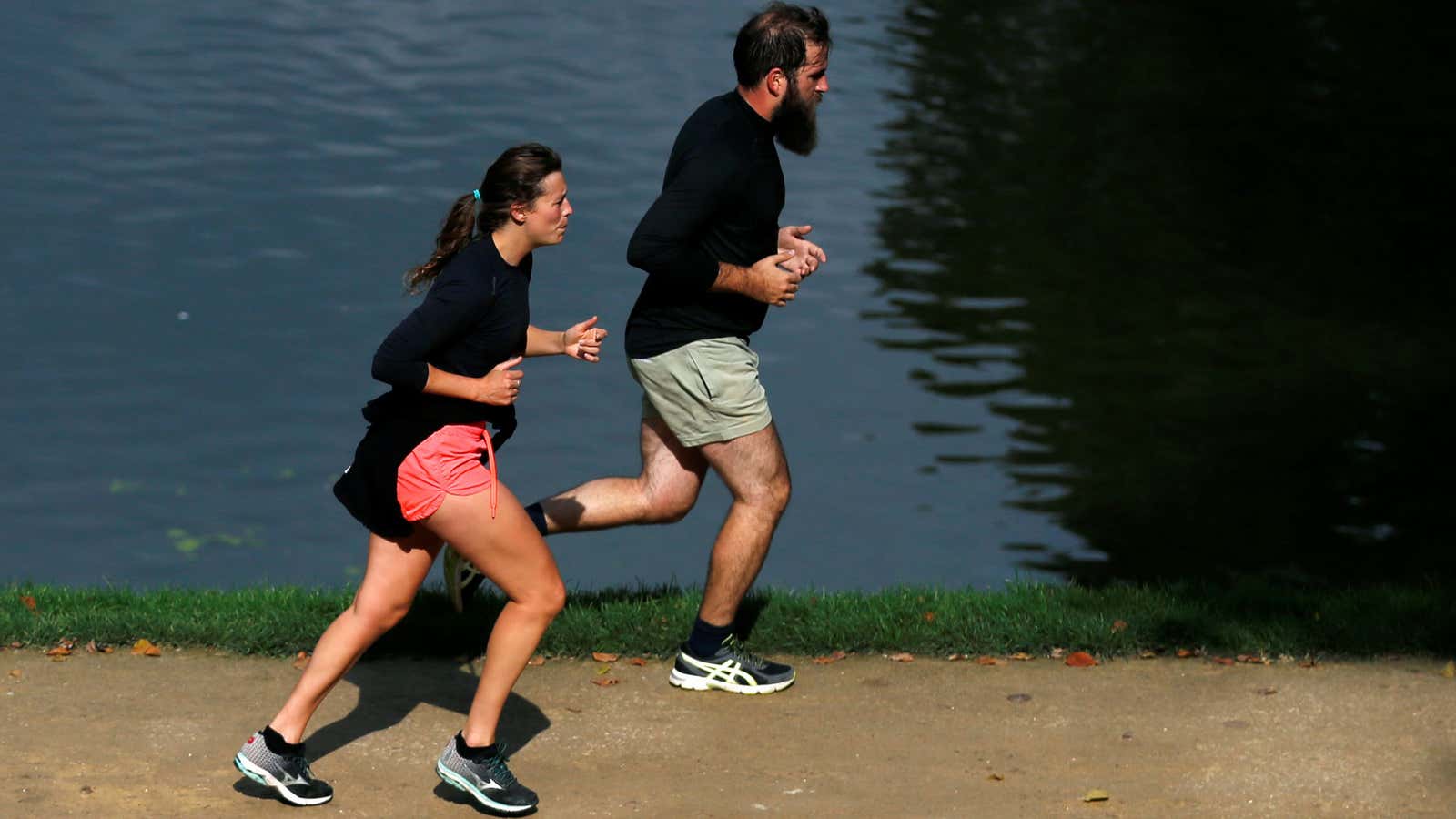I will not be making any New Year’s resolutions this year. That is not because there’s no room for self-improvement: there’s plenty. But there are two things that actually change my habits, and they have nothing to do with the date: me and the science of habit formation.
Why we make resolutions….
We love making resolutions around milestones. A Wharton study from 2013 found that interest in dieting increases at the start of a new week by 14.4% and the new year by 82.1%. The probability of visiting the gym increases at the beginning of a new week by 33.4% and people are more likely to commit to their goals at the beginning of a new year by 145%.
The authors, Hengchen Dai, Katherine L. Milkman, Jason Riis, propose that we embrace lofty goals on artificial dates because it offers a new mental accounting period, allowing us to put our our old, fat, lazy selves in the past tense and start anew with an improved version of ourselves. It also allows us to step back from the day-to-day minutiae of life and take a bigger view of what we want in life; when we take a bigger view, we get aspirational. Size six skinny jeans, here I come.
…but they don’t work
The problem is that resolutions are not always effective at producing lasting change. The authors acknowledge that after a big temporal landmark, say the New Year, elevated motivation soars. But it quickly wanes. Oscar Wilde knew this: he called the origin of resolutions “pure vanity. Their result is absolutely nil” in The Picture of Dorian Gray. Dai argues that something is better than nothing: that temporary burst may not be enough to lose 10 lbs., but it may get you signed up for a 401(k) or get you to the gym a few times, which is better than never going.
But slimming down or exercising more requires self-control, not fleeting bursts of motivation hashed out in the haze of a hangover.
Forming habits that stick
Gretchen Rubin is the author of Better than Before, a fantastic book about habits. To change habits, she has these five tips, which can be done as part of a New Year’s resolution or on the other 364 days of the year:
- Monitor: ”It’s the magical elixir if life: anything we monitor we do a better job of.”
- Scheduling: ”Seeing it on the calendar will make it more likely.”
- Convenience: If you can afford it, pay more for the gym that is three blocks closer. You will go more often. “We are far more likely to do something when it is slightly more convenient,” Rubin says.
- Pairing: Give one thing you love as a reward for another one you find challenging. For example, reality TV if and only if you are on the treadmill.
- Watch out for loopholes: ”We so easily let ourselves off the hook,” she says. Life is not too short to forego the run for the couch and no, you do not need that third martini.
I need a new hobby like I needed a pair new of guinea pigs. But last year, I decided to learn the piano when my daughter started taking lessons. I have never played an instrument and have never been accused of being musical. But I adore music and I have always wanted to learn to play. With one job, two kids and an intimidating to-do list, it seemed a harebrained undertaking.
But I’ve successfully applied Rubin’s framework:
- Monitor: My daughter keeps track of how much she practices, so I do too.
- Scheduling: I “schedule” my practice for immediately after I get my kids to bed: any later and I keep up the neighbor (he came over to tell me that).
- Convenience: The piano is in my living room. No excuses there.
- Pairing: I have paired it with something I love: drinking. While I play, I have a beer or a glass of wine.
- Loopholes: Any loopholes I might face are overwhelmed by the need to set a good example for my daughter: practice is important, and struggling through something that does not come naturally is part of life (and I struggle mightily).
Rubin is actually a fan of using New Years to re-boot habits. “For a lot of people, it’s very helpful,” she told Quartz. “It focuses people’s attention on the things they should think about all the time.”
I am no better than the next person at changing habits. But if I set out to do it, I certainly won’t do it on Jan. 1. I’ll do it when I have a framework for success, which will more likely than not involve beer.
